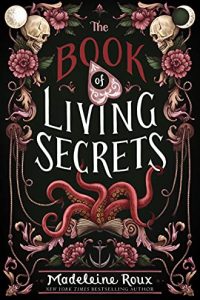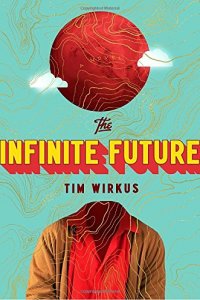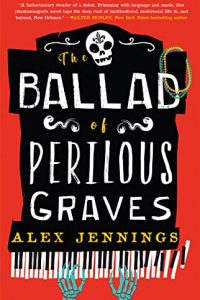Liz Bourke Reviews Harrow the Ninth by Tamsyn Muir
 Harrow the Ninth, Tamsyn Muir (Tor.com Publishing 978-1-250-31322-5, $26.99, 512pp, hc) August 2020. Cover by Tommy Arnold.
Harrow the Ninth, Tamsyn Muir (Tor.com Publishing 978-1-250-31322-5, $26.99, 512pp, hc) August 2020. Cover by Tommy Arnold.
Harrow the Ninth is Tamsyn Muir’s second novel, a direct sequel to last year’s Gideon the Ninth, a novel with a strong voice and appealingly batshit worldbuilding that left me with distinctly mixed feelings at its conclusion: a conclusion that blunted the strength of what came before and left me with doubts that Muir would be able to build on the best parts of Gideon the Ninth when it came to the next novel in the series.
Harrow the Ninth opens with a prologue very much in medias res, a flash forward that takes place towards the end of the rest of the narrative. Its second-person present-tense point of view is vastly different to Gideon the Ninth‘s style: the events of that novel were recounted in the past tense, from a third-person point of view. That allowed the voice and the characterisation to take centre stage alongside the worldbuilding and plot, but here stylistic and structural choices muddy the waters. Harrow the Ninth is a fascinating hot mess, but it’s still a mess, and its style and structure are a large part of why.
Harrowhark Nonagesimus, Reverend Daughter of the Ninth House, survived the events of Gideon the Ninth to become one of the Lyctors of the Undying Emperor. She joins Ianthe – a dangerous semi-rival – and the Emperor’s three surviving Lyctors in a struggle that has lasted millennia and is rooted in the secrets of the Emperor’s power. The Lyctors and the Emperor, after so long, are each other’s only peers, only family, and their relationship dynamics are just as fucked up as you might expect from family members who know each other too well to still like (or even very much respect) each other, but who’re yoked together in a war that doesn’t seem very likely to end in success. Into this staggers Harrow, simultaneously arrogant and bereft, discovering that she’s written herself a series of letter-instructions (though she can no longer remember doing so, or why she might have done so) that add up to a puzzle she’s apparently forbidden herself from solving. She discovers, too, that she’s different to the other Lyctors: dangerously handicapped, because she cannot access the skills of her dead cavalier the way they can. This handicap may inspire them to kill her before her weakness can provide a gap in their defences.
Harrowhark believes her dead cavalier was called Ortus, a tragicomic figure of a man. As the narrative of Harrowhark’s participation in the Emperor’s inner circle moves forward in the present day of Harrow the Ninth, so too does a retelling of the events of Gideon the Ninth – in the third person, unlike the present-day narrative, and told from Harrow’s point of view: but this time with Ortus where the reader remembers Gideon.
The past-set narrative offers very little new – a different perspective on similar events – but it only belatedly becomes clear whether Harrow is a particularly unreliable narrator or whether this is an alternate-universe Harrow. The worldbuilding is sufficiently expansively wild – and unconstrained by little things like the ordinary rules of physics or society – that alternate universe and cross-universe communication is as plausible an explanation as any, and the messily nested secrets and manipulations don’t do anything to forward the cause of clarity. Belatedly, it becomes clear that Harrow rewrote her own memories out of the desperate desire to prevent herself from absorbing Gideon into herself – Gideon, for whom Harrow (belatedly, perhaps incompletely) realised some degree of love.
The extent of that love is never clear, and that’s a problem. Gideon the Ninth spent a lot of time on the relationship, contentious and otherwise, between Gideon and Harrow, and their connection felt like one of the central issues that remained unresolved at the close of Muir’s debut. But in Gideon the Ninth we saw Harrow through Gideon’s eyes; in Harrow the Ninth, what we see of Harrow’s past is in a world where she has no memory of Gideon’s existence, and where, in consequence, we have very little direct evidence of her view of Gideon until the climax of Harrow the Ninth. The climax of Harrow the Ninth is a messy, confused, kaleidoscopic mess of (incomplete) revelations and (hasty) exposition, identity confusion and out-of-body experiences, grand confrontations and running battles. Throughout Harrow the Ninth, Gideon’s absence is a distorting weight on our expectations as readers – her absence from Harrow’s remembered past, and her absence from the present. Given certain elements of the worldbuilding, the question of whether Gideon’s death at the close of Gideon the Ninth is entirely permanent has always, after all, appeared to be an open one.
The conclusion of Harrow the Ninth doesn’t answer that question. Harrow the Ninth raises a lot of questions, and settles very few of them. Its conclusion raises more.
Harrow the Ninth is a ferment. It introduces fresh factions – multiple ones – and even more wild and weird worldbuilding. It’s in constant motion, retreading old ground and breaking new. But its constant shifts of time and perspective, and the unreliability of its narrator, mean that it never quite attains a coherent narrative through-line or a thematic argument that a reader can get their teeth into. Harrow the Ninth is a fun read. Its voice is strong. It’s an entertaining mess, and I enjoyed it. But it’s still a mess, and I have no confidence that any future volume will get less messy.
Liz Bourke is a cranky queer person who reads books. She holds a Ph.D in Classics from Trinity College, Dublin. Her first book, Sleeping With Monsters, a collection of reviews and criticism, is out now from Aqueduct Press. Find her at her blog, her Patreon, or Twitter. She supports the work of the Irish Refugee Council and the Abortion Rights Campaign.
This review and more like it in the July 2020 issue of Locus.
 While you are here, please take a moment to support Locus with a one-time or recurring donation. We rely on reader donations to keep the magazine and site going, and would like to keep the site paywall free, but WE NEED YOUR FINANCIAL SUPPORT to continue quality coverage of the science fiction and fantasy field.
While you are here, please take a moment to support Locus with a one-time or recurring donation. We rely on reader donations to keep the magazine and site going, and would like to keep the site paywall free, but WE NEED YOUR FINANCIAL SUPPORT to continue quality coverage of the science fiction and fantasy field.







